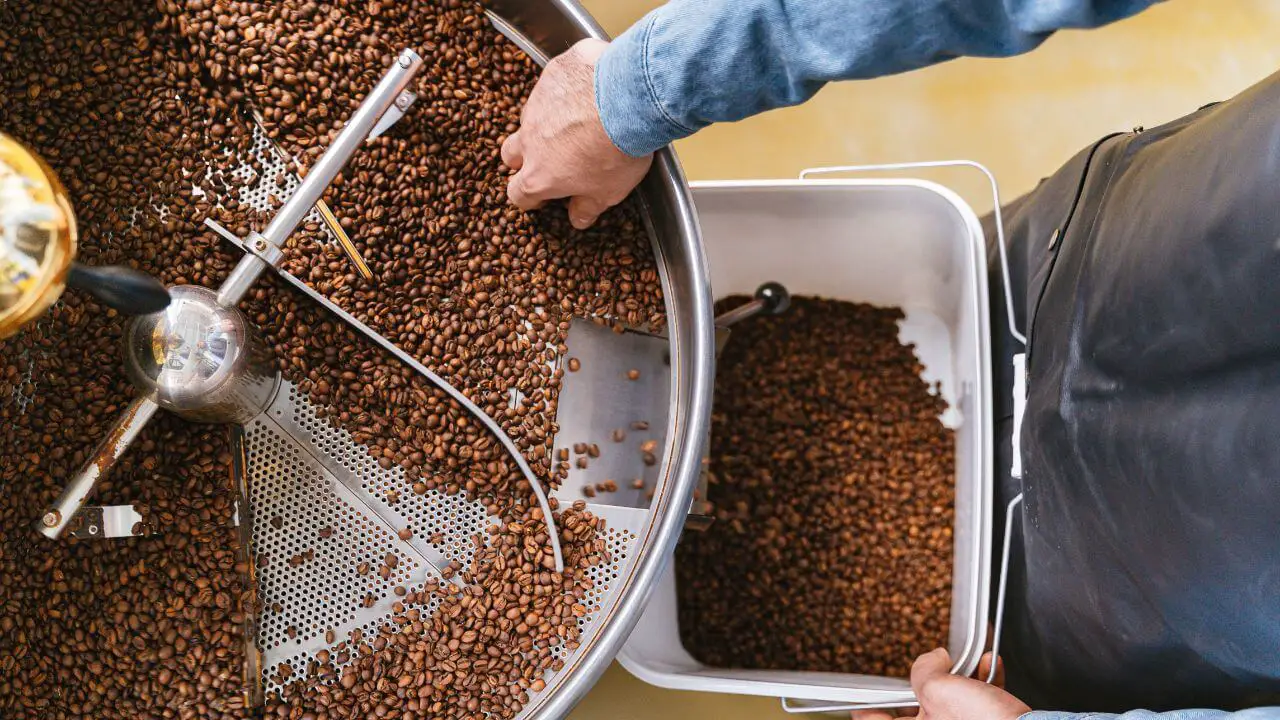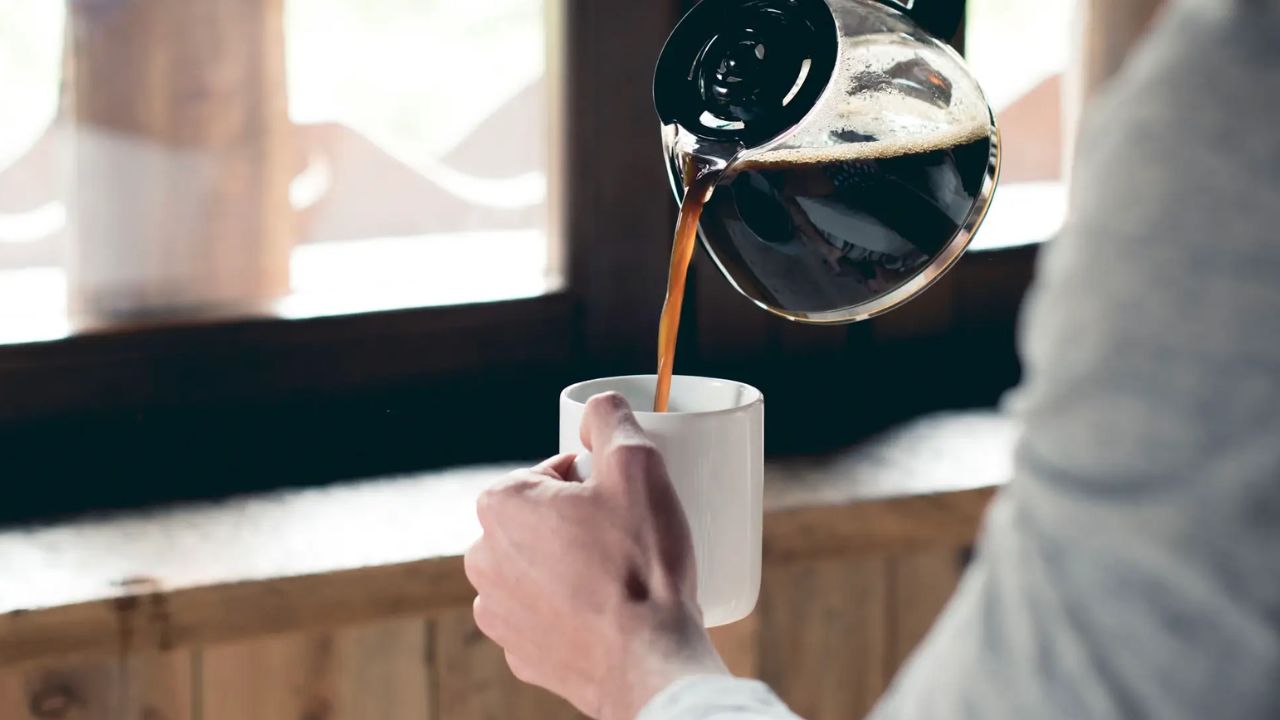How Long are Coffee Beans Good? Unveil Freshness Tips!

Coffee beans are typically good for about six months. They retain optimal freshness within the first 2 to 4 weeks after roasting.
Selecting the perfect cup of coffee is an art that hinges on the beans’ freshness. The journey to a rich and flavorful brew begins with understanding the shelf life of coffee grounds. Coffee fans know that the quality of beans can make or break the coffee experience.
Once roasted, the clock starts ticking on the beans’ freshness, with peak flavors concentrated in the initial few weeks. Proper storage is crucial; keeping beans in a cool, dark place away from moisture and air preserves their quality. As the beans age, they slowly lose their aromatic oils and robust taste, making the timing between roasting and brewing a critical factor for coffee lovers seeking that perfect cup.
The Shelf Life Of Coffee Beans
Enjoying a great cup of coffee starts with fresh beans. The shelf life of coffee beans is key to flavor and aroma. Knowing how long they last helps maintain their quality. Let’s explore factors that affect their freshness and typical lifespan.
Factors Influencing Freshness
Freshness is crucial for the perfect brew. Several elements play a part in keeping beans fresh:
- Air Exposure: Oxygen turns beans stale.
- Light: Direct light can degrade quality.
- Heat: High temperatures spoil beans faster.
- Moisture: Humidity leads to loss of flavor.
- Storage: Airtight containers preserve freshness.
Typical Lifespan Of Roasted Beans
Roasted coffee beans have a prime window of freshness. Here’s a guide to their typical lifespan:
| Roast Type | Lifespan |
|---|---|
| Whole Bean | 3 to 4 weeks |
| Ground Bean | 1 to 2 weeks |
Storing beans in a cool, dark place extends their life. They were grinding beans just before brewing to keep the coffee fresh. Note roast dates to enjoy beans at their best.
Freshness Indicators For Coffee Beans
Understanding when coffee beans have passed their peak can be an art. Freshness indicators for coffee grounds are easy to spot once you know what to look for. Let’s explore some key signs.
Aroma And Flavour Profiles
Coffee grounds are best when they are fresh. Fresh beans release a strong, pleasant aroma that fades over time. A lack of a rich smell often indicates stale beans. Fresh beans should taste rich and full-bodied, while stale beans should taste flat and lifeless.
Visual Cues
Look at your coffee grounds closely. Fresh beans have a slight sheen from their natural oils. These oils dry up in stale beans, leaving them dull. Color can also tell a story. Beans that appear overly dark may be old or over-roasted.
| Indicator | Fresh Bean | Stale Bean |
|---|---|---|
| Aroma | Strong, pleasant | Weak, bland |
| Flavor | Rich, full-bodied | Flat, lifeless |
| Appearance | Slight sheen, vibrant color | Dull, darkened |
- Store beans properly to maintain freshness.
- Use an airtight container for storage.
- Keep beans in a cool, dark place away from direct sunlight.
Storage Solutions For Optimal Freshness
Preserving the taste of coffee grounds starts with proper storage. Freshness is key to that perfect cup. Let’s explore how to keep beans at their peak.
Best Containers For Storage
Airtight containers protect the coffee from air, moisture, and odors. Glass or ceramic with a tight seal works best. A one-way valve is a bonus, letting CO2 out without letting air in.
- Vacuum-sealed containers remove air, keeping beans fresher for longer.
- Tinted containers shield beans from harmful light.
Temperature And Humidity Control
Consistent, cool temperatures keep beans fresh. Avoid heat sources and direct sunlight. A pantry or cabinet is ideal. Aim for 60-75°F (15-24°C).
Humidity breeds mold and ruins flavor. Keep beans in a dry place. Use a dehumidifier if needed.
| Condition | Effect on Coffee Beans |
|---|---|
| High Temperature | Speeds up aging |
| Direct Sunlight | Degrades quality |
| Moisture | Causes mold |
The Role Of Roasting Dates
Understanding the role of roasting dates is vital to enjoying fresh coffee. The date tells you when the beans were roasted. Freshly roasted grounds make the best coffee.
Decoding Roast Dates
Roast dates are printed on coffee bags. This date shows when the beans were roasted. Knowing this helps you pick the freshest coffee.
- Look for the date: It’s usually on the back or bottom of the bag.
- Choose recent dates: Freshness is best within a month of roasting.
Impact On Bean Freshness
The freshness of coffee grounds changes over time. Beans are most flavorful soon after roasting.
| Time After Roasting | Freshness Level |
|---|---|
| 1 week | Very fresh |
| 2 weeks | Still fresh |
| 1 month | Less fresh |
Always check the roast date. For the best taste, use beans within a month. This ensures you enjoy your coffee at its best.
Freezing Coffee Beans: Myths And Facts
Let’s explore the world of coffee preservation with a focus on freezing. Many coffee lovers question whether freezing beans is a good idea. This section dives into the myths and facts surrounding this topic.
Pros And Cons Of Freezing
Freezing coffee grounds can be controversial. Let’s weigh the arguments.
| Pros | Cons |
|---|---|
| Preserves freshness longer | Can cause flavor loss |
| Slows down degradation | Risk of moisture and freezer burn |
| Great for bulk storage | Can absorb odors from the freezer |
Best Practices For Freezing
To freeze beans right, follow these steps:
- Use airtight containers or vacuum-sealed bags.
- Freeze in small batches for easy use.
- Keep beans away from strong odors.
- Defrost only what you’ll use to avoid moisture.
- Never refreeze after defrosting.
Grinding Coffee Beans And Freshness
The moment coffee grounds are ground, they start losing freshness. Grinding coffee grounds is a commitment to immediate brewing to capture the complete flavor profile of your beans. Let’s dive into the best practices for grinding your grounds and keeping your coffee fresh.
When To Grind For Peak Freshness
Grind the beans just before brewing for the freshest cup of coffee. Once ground, coffee grounds give up a greater surface area to the air, which results in faster oxidation and flavor loss. Pre-grinding beans may lead to a coffee that tastes stale.
- Grind beans for espresso immediately before use.
- For drip or French press, grinding a few minutes ahead is acceptable.
- Never grind all your beans at once unless necessary.
Storing Ground Coffee
Storing ground coffee correctly extends its shelf life and preserves its taste. Follow these tips:
| Storage Tip | Benefit |
|---|---|
| Airtight containers | Prevents air from making the coffee stale. |
| Dark, cool place | Protects from light and heat that degrade flavor. |
| Avoid moisture | Prevents clumping and mold growth. |
| Limit storage time | Use within one to two weeks for best taste. |
Remember: Once ground, coffee’s countdown begins. Proper storage means better coffee.
Buying Tips For Fresh Coffee Beans
When seeking the freshest coffee beans, knowing what to buy is key. Fresh beans mean better flavor. Here are some essential tips to help you choose the best coffee beans.
Selecting The Right Roaster
The choice of roaster is crucial for fresh coffee grounds. Look for roasters who roast beans on demand. This means they roast beans only when you order. This practice ensures the beans are not sitting on shelves for long.
- Check the roast date: Always look for the roast date on the package. Choose beans that have been roasted within the past two weeks.
- Local roasters: Opt for local roasters if possible. Local roasters usually have a direct relationship with coffee growers and ensure fresh delivery.
Understanding Bean Origin And Variety
Bean origin and variety affect the taste and freshness. Different regions and varieties offer unique flavors and quality.
| Region | Flavor Profile | Bean Variety |
|---|---|---|
| Africa | Fruity and Floral | Arabica |
| South America | Nutty and Sweet | Arabica, Robusta |
| Asia | Earthy and Rich | Robusta |
Explore the varieties: Try different origins and varieties to find what you love best.
Home Roasting For Ultimate Freshness
The quest for the freshest cup of coffee leads many enthusiasts to home roasting. Freshly roasted beans are the pinnacle of coffee flavors, unlocking a world of aromas and tastes that pre-roasted coffee can’t match. With the right approach, coffee lovers can enjoy beans at their peak freshness and taste, just days or even moments after roasting.
Basics Of Home Roasting
Home coffee roasting is a process that turns green, unroasted coffee grounds into ready-to-brew coffee. The magic happens when heat transforms the beans from green and grassy to rich and robust. Here’s a step-by-step guide:
- Choose high-quality, green coffee grounds.
- Heat beans, listen for the “first crack.”
- Continue roasting to the desired level.
- Cool beans immediately to stop roasting.
- Let roasted beans degas for optimal flavor.
With these steps, coffee retains its freshness for weeks, not just days.
Equipment Needed For Roasting At Home
To start roasting at home, you’ll need some key pieces of equipment:
- Coffee roaster: From a simple pan to a dedicated machine.
- Heat source: Stove, oven, or roaster-specific heating element.
- Stirring tool: To keep beans moving and roast even.
- Cooling tray: To cool beans quickly after roasting.
- Storage containers: To keep roasted beans airtight.
Selecting the right roaster and tools is crucial for achieving the perfect roast at home.
Frequently Asked Questions
Are 2-Year-Old Coffee Beans Still Good?
Two-year-old coffee beans can lose freshness and flavor but are generally safe if stored properly.
Do Coffee Beans Go Bad?
Yes, coffee beans can go wrong. Over time, they lose flavor and aroma, especially when exposed to air, moisture, heat, and light. Proper storage extends their freshness.
Can You Drink 20-Year-Old Coffee Beans?
If stored properly, coffee made from 20-year-old beans can be drunk, though the flavor may have diminished over time.
When Should You Throw Out Coffee Grounds?
Discard coffee beans if they lose their aroma or taste stale, typically after 3-4 weeks from opening.
How Long Do Coffee Beans Stay Fresh?
Fresh coffee grounds maintain quality for about 2 to 4 weeks after roasting when appropriately stored in a cool, dark place.
What Affects Coffee Bean Shelf Life?
Exposure to air, light, heat, and moisture can significantly shorten the shelf life of coffee grounds, diminishing their flavour and aroma.
Can You Freeze Coffee Beans For Storage?
You can freeze coffee beans to extend their freshness, but they should be stored in an airtight container to prevent moisture.
How To Store Coffee Beans Properly?
Store coffee beans in an airtight container away from light, heat, and moisture, ideally at room temperature.
Do Whole Coffee Beans Last Longer Than Ground?
Whole coffee beans last longer than ground coffee because they have a smaller surface area exposed to air, preserving their freshness.
Can Old Coffee Beans Make You Sick?
Old coffee beans are unlikely to make you sick, but they may have a stale taste and reduced aromatic quality.
Conclusion
Understanding the shelf life of coffee grounds is critical to enjoying their full flavor. Proper storage extends their freshness, ensuring a delicious brew every time. Air, moisture, heat, and light are the main enemies of coffee. You can enjoy exceptional coffee at home any day by keeping beans in a cool, dark place.














